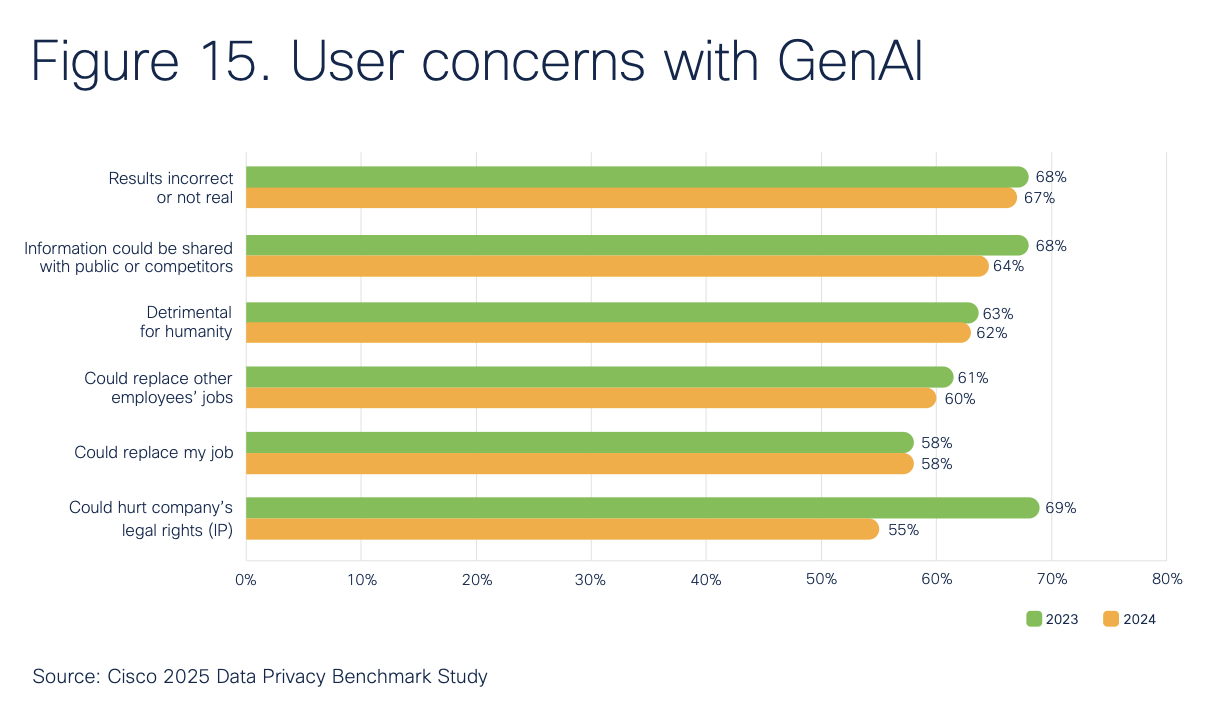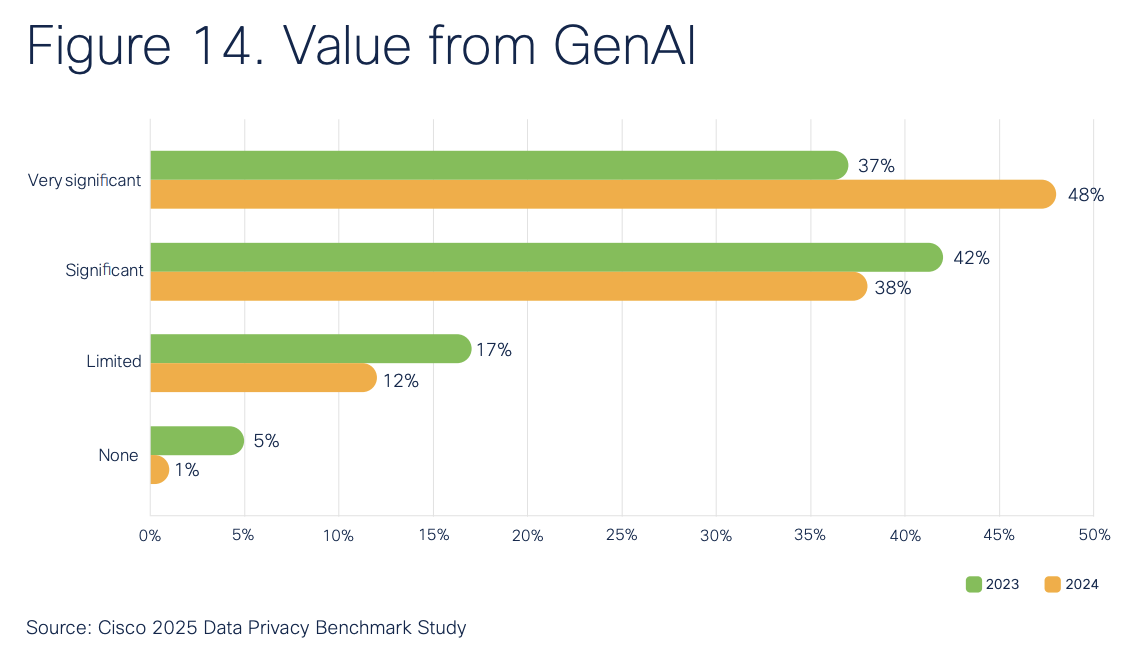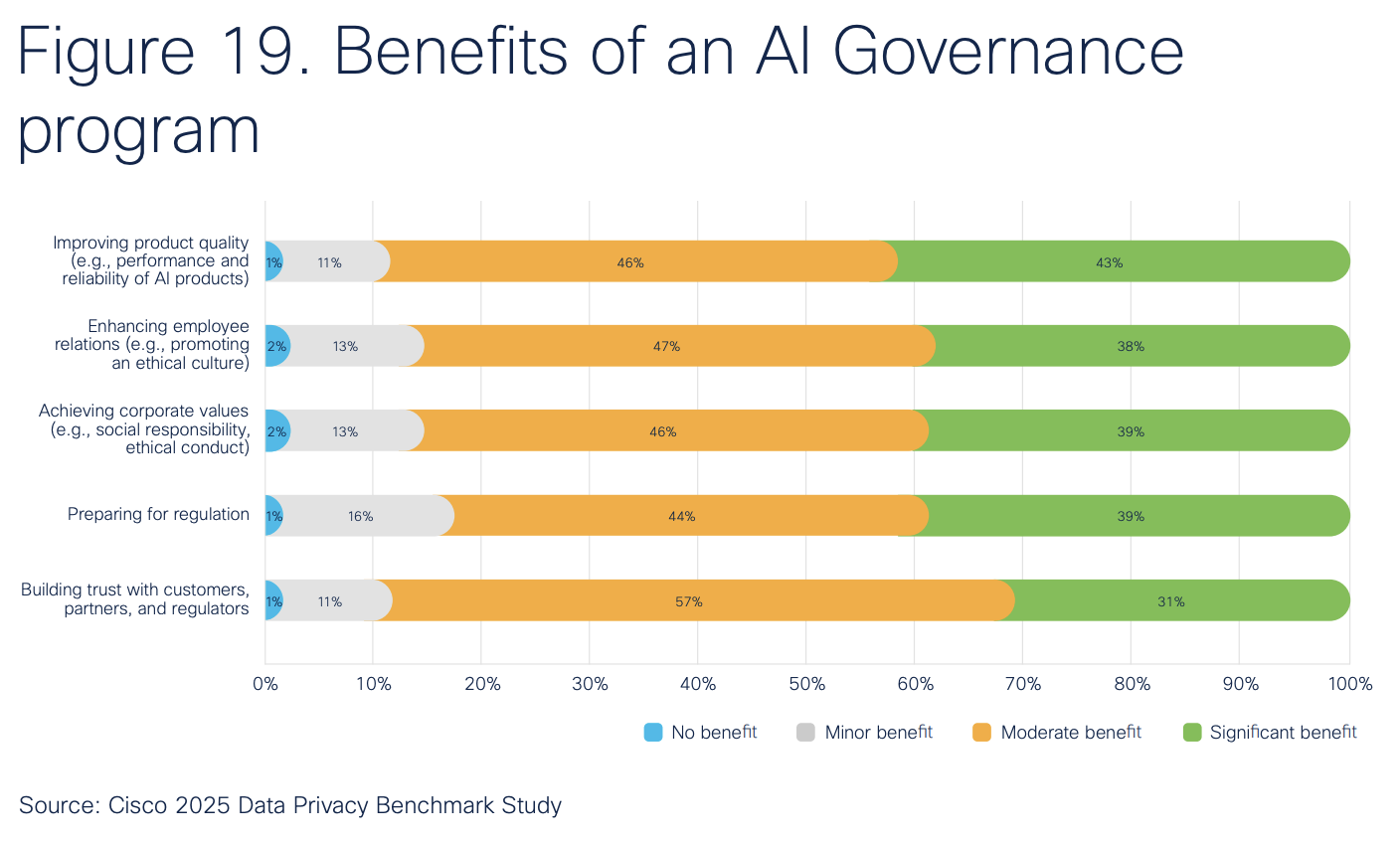
Experts cite need to balance 'opportunities and risks' using new tech

Nearly half of security and privacy professionals have admitted that employees' information is entered into generative AI tools despite organisations' privacy concerns, according to a new report.
Cisco's 2025 Data Privacy Benchmark Study found that 46% of its respondents said employee names or information is inputted into GenAI applications. Other information that they enter in these tools include:
The findings come despite privacy concerns from organisations surrounding GenAI tools, according to the report.
Among the top user concerns of Cisco's respondents with GenAI is the risk that the information they put in it can be shared with the public or competitors (64%).

These concerns are not new, as it even led some organisations to ban ChatGPT and other similar GenAI applications in their workplaces over the years.
These privacy concerns rise following the growing use of GenAI tools among employees. According to Cisco's report, 63% of employees said they are very familiar with GenAI in 2024, higher than the 55% in 2023.
In fact, nearly half of the respondents said they are getting "very significant" value from the technology.

Dev Stahlkopf, Cisco's chief legal officer, said privacy and proper data governance are important to responsible AI.
"For organisations working toward AI readiness, privacy investments establish essential groundwork, helping to accelerate effective AI governance," Stahlkopf said in a statement.
Cisco's report said there are already a number of organisations that have introduced an AI governance programme and are benefitting from them.
"They are seeing the benefits of investing in strong AI governance, including the establishment of ethical, legal, and operational frameworks to manage risk, protect stakeholders, build trust, and avoid fines," the report read.
More than three-quarters of the respondents also noted moderate or significant benefits from robust AI governance in product quality, enhanced employee relations, achievement of corporate values among others.

It would be wise for organisations to deploy AI with governance and controls to "respect privacy and manage unintended externalities," according to the report.
"While there is unquestionable business value to be derived from AI, one must balance both opportunities and risks," it said.